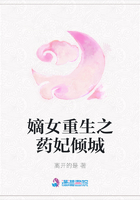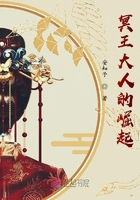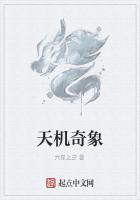"As you wished me to say what I thought of 'The School for Fathers,' I hastened to read it. The book seems to me clever, interesting, very amusing, and likely to please generally. There is a merit in the choice of ground, which is not yet too hackneyed; the comparative freshness of subject, character, and epoch give the tale a certain attractiveness. There is also, Ithink, a graphic rendering of situations, and a lively talent for describing whatever is visible and tangible--what the eye meets on the surface of things. The humour appears to me such as would answer well on the stage; most of the scenes seem to demand dramatic accessories to give them their full effect. But I think one cannot with justice bestow higher praise than this. To speak candidly, I felt, in reading the tale, a wondrous hollowness in the moral and sentiment; a strange dilettante shallowness in the purpose and feeling. After all, 'Jack' is not much better than a 'Tony Lumpkin,' and there is no very great breadth of choice between the clown he IS and the fop his father would have made him. The grossly material life of the old English fox-hunter, and the frivolous existence of the fine gentleman present extremes, each in its way so repugnant, that one feels half inclined to smile when called upon to sentimentalise over the lot of a youth forced to pass from one to the other; torn from the stables, to be ushered perhaps into the ball-room. Jack dies mournfully indeed, and you are sorry for the poor fellow's untimely end; but you cannot forget that, if he had not been thrust into the way of Colonel Penruddock's weapon, he might possibly have broken his neck in a fox-hunt. The character of Sir Thomas Warren is excellent; consistent throughout. That of Mr. Addison not bad, but sketchy, a mere outline--wanting colour and finish. The man's portrait is there, and his costume, and fragmentary anecdotes of his life; but where is the man's nature--soul and self? I say nothing about the female characters--not one word; only that Lydia seems to me like a pretty little actress, prettily dressed gracefully appearing and disappearing, and reappearing in a genteel comedy, assuming the proper sentiments of her part with all due tact and *****te, and--that is all.
"Your description of the model man of business is true enough, Idoubt not; but we will not fear that society will ever be brought quite to this standard; human nature (bad as it is) has, after all, elements that forbid it. But the very tendency to such a consummation--the marked tendency, I fear, of the day--produces, no doubt, cruel suffering. Yet, when the evil of competition passes a certain limit, must it not in time work its own cure? Isuppose it will, but then through some convulsed crisis, shattering all around it like an earthquake. Meantime, for how many is life made a struggle; enjoyment and rest curtailed;labour terribly enhanced beyond almost what nature can bear Ioften think that this world would be the most terrible of enigmas, were it not for the firm belief that there is a world to come, where conscientious effort and patient pain will meet their reward.--Believe me, my dear Sir, sincerely yours, C. BRONTE."A letter to her old Brussels schoolfellow gives a short retrospect of the dreary winter she had passed through.
"Haworth, April 12th, 1852.
". . . I struggled through the winter, and the early part of the spring, often with great difficulty. My friend stayed with me a few days in the early part of January; she could not be spared longer. I was better during her visit, but had a relapse soon after she left me, which reduced my strength very much. It cannot be denied that the solitude of my position fearfully aggravated its other evils. Some long stormy days and nights there were, when I felt such a craving for support and companionship as Icannot express. Sleepless, I lay awake night after night, weak and unable to occupy myself. I sat in my chair day after day, the saddest memories my only company. It was a time I shall never forget; but God sent it, and it must have been for the best.
"I am better now; and very grateful do I feel for the restoration of tolerable health; but, as if there was always to be some affliction, papa, who enjoyed wonderful health during the whole winter, is ailing with his spring attack of bronchitis. Iearnestly trust it may pass over in the comparatively ameliorated form in which it has hitherto shown itself.
"Let me not forget to answer your question about the cataract.
Tell your papa that MY father was seventy at the time he underwent an operation; he was most reluctant to try the experiment; could not believe that, at his age, and with his want of robust strength, it would succeed. I was obliged to be very decided in the matter, and to act entirely on my own responsibility. Nearly six years have now elapsed since the cataract was extracted (it was not merely depressed); he has never once during that time regretted the step, and a day seldom passes that he does not express gratitude and pleasure at the restoration of that inestimable privilege of vision whose loss he once knew."I had given Miss Bronte; in one of my letters, an outline of the story on which I was then engaged, and in reply she says:--"The sketch you give of your work (respecting which I am, of course, dumb) seems to me very noble; and its purpose may be as useful in practical result as it is high and just in theoretical tendency. Such a book may restore hope and energy to many who thought they had forfeited their right to both; and open a clear course for honourable effort to some who deemed that they and all honour had parted company in this world.
"Yet--hear my protest!
"Why should she die? Why are we to shut up the book weeping?
"My heart fails me already at the thought of the pang it will have to undergo. And yet you must follow the impulse of your own inspiration. If THAT commands the slaying of the victim, no bystander has a right to put out his hand to stay the sacrificial knife: but I hold you a stern priestess in these matters."As the milder weather came on, her health improved, and her power of writing increased. She set herself with redoubled vigour to the work before her; and denied herself pleasure for the purpose of steady labour. Hence she writes to her friend:--"May 11th.
"Dear E----, --I must adhere to my resolution of neither visiting nor being visited at present. Stay you quietly at B., till you go to S., as I shall stay at Haworth; as sincere a farewell can be taken with the heart as with the lips, and perhaps less painful. I am glad the weather is changed; the return of the south-west wind suits me; but I hope you have no cause to regret the departure of your favourite east wind. What you say about ---- does not surprise me; I have had many little notes (whereof I answer about one in three) breathing the same spirit,--self and child the sole all-absorbing topics, on which the changes are rung even to weariness. But I suppose one must not heed it, or think the case singular. Nor, I am afraid, must one expect her to improve. I read in a French book lately, a sentence to this effect, that 'marriage might be defined as the state of two-fold selfishness.' Let the single therefore take comfort. Thank you for Mary's letter. She DOES seem most happy;and I cannot tell you how much more real, lasting, and better-warranted her happiness seems than ever ----'s did. Ithink so much of it is in herself, and her own serene, pure, trusting, religious nature. ----'s always gives me the idea of a vacillating, unsteady rapture, entirely dependent on circumstances with all their fluctuations. If Mary lives to be a mother, you will then see a greater difference.
"I wish you, dear E., all health and enjoyment in your visit;and, as far as one can judge at present, there seems a fair prospect of the wish being realised.--Yours sincerely, "C. BRONTE."


